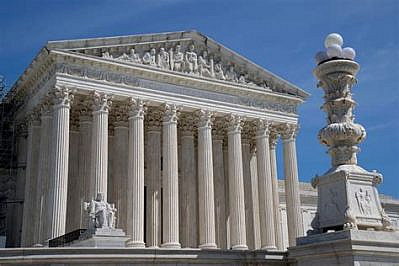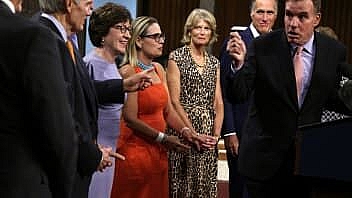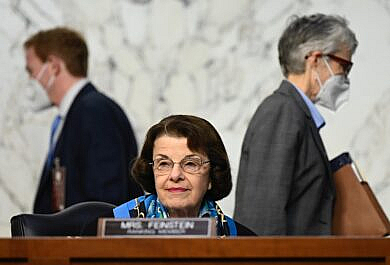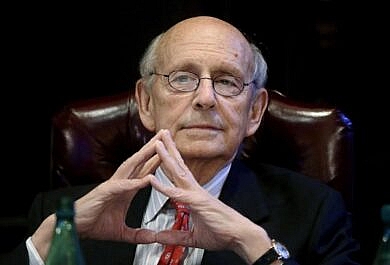The Supreme Court ended the 2023 term on Friday with decisions defending core American values: religious liberty, freedom of speech, separation of powers, and equal protection under the law.
Summary
The Supreme Court ended the 2023 term on Friday with decisions defending core American values: religious liberty, freedom of speech, separation of powers, and equal protection under the law.
Separation of Powers: Biden v. Nebraska (6-3 decision, Chief Justice John Roberts for the majority)
- Held: “The HEROES Act allows the Secretary [of Education] to “waive or modify” existing statutory or regulatory provisions applicable to financial assistance programs under the Education Act, but does not allow the Secretary to rewrite that statute to the extent of canceling $430 billion of student loan principal.”
- Background: The Biden administration attempted to enact a $430 billion student loan debt transfer plan through executive order, using the 2003 HEROES Act as justification.
- The Court found that the HEROES Act does not allow the Secretary of Education to “rewrite that statue” to enact student loan debt relief and such a massive policy requires “clear congressional authorization,” which the administration does not have, so the plan has been struck down.
- Roberts: “The Secretary asserts that the HEROES Act grants him the authority to cancel $430 billion of student loan principal. It does not. We hold today that the Act allows the Secretary to “waive or modify” existing statutory or regulatory provisions applicable to financial assistance programs under the Education Act, not to rewrite that statute from the ground up.”
- Roberts: “It has become a disturbing feature of some recent opinions to criticize the decisions with which they disagree as going beyond the proper role of the judiciary. Today, we have concluded that an instrumentality created by Missouri, governed by Missouri, and answerable to Missouri is indeed part of Missouri; that the words “waive or modify” do not mean “completely rewrite”; and that our precedent— old and new—requires that Congress speak clearly before a Department Secretary can unilaterally alter large sections of the American economy. We have employed the traditional tools of judicial decisionmaking in doing so.”
Equal Protection Under the Law: Students for Fair Admissions v. Harvard College/University of North Carolina, (6-2/6-3 decision, Roberts for the majority)
- Held: “Harvard’s and UNC’s admissions programs violate the Equal Protection Clause of the Fourteenth Amendment…Eliminating racial discrimination means eliminating all of it. Accordingly, the Court has held that the Equal Protection Clause applies “without regard to any differences of race, of color, or of nationality”— it is “universal in [its] application.””
- Background: The conservative majority justified its decision in a long trail of decisions dating back to Brown v. Board of Education where the Court had to compel Americans to follow the 14th Amendment and eliminate discrimination on the basis of race from American society.
- Harvard and UNC were found to be using race-based admissions systems to use race as a “negative” to result in fewer admissions of Asian-American students and “require stereotyping…contrary to the ‘core purpose’ of the Equal Protection Clause.”
- As Harvard and UNC’s admissions programs “lack sufficiently focused and measurable objectives warranting the use of race, unavoidably employ race in a negative manner, involve racial stereotyping, and lack meaningful end points, those admissions programs cannot be reconciled with the guarantees of the Equal Protection Clause.”
- Roberts: “[T]he student must be treated based on his or her experiences as an individual—not on the basis of race. Many universities have for too long done just the opposite. And in doing so, they have concluded, wrongly, that the touchstone of an individual’s identity is not challenges bested, skills built, or lessons learned but the color of their skin. Our constitutional history does not tolerate that choice.”
Freedom of Speech: 303 Creative LLC v. Elenis (6-3 decision, Neil Gorsuch for the majority)
- Held: “The First Amendment prohibits Colorado from forcing a website designer to create expressive designs speaking messages with which the designer disagrees.”
- Background: Graphic designer Lorie Smith requested an injunction to confirm that she may not be compelled by the State of Colorado to create websites for same-sex weddings that go against her belief in traditional marriage. Smith is willing to serve clients regardless of sexual orientation but would not product content that “contradicts biblical truth” regardless of who commissioned it.
- Gorsuch: “The First Amendment’s protections belong to all, not just to speakers whose motives the government finds worthy. In this case, Colorado seeks to force an individual to speak in ways that align with its views but defy her conscience about a matter of major significance… Consistent with the First Amendment, the Nation’s answer is tolerance, not coercion. The First Amendment envisions the United States as a rich and complex place where all persons are free to think and speak as they wish, not as the government demands.”
Religious Liberty: Groff v. DeJoy (9-0 decision, Samuel Alito for a unanimous Court)
- Held: “Title VII requires an employer that denies a religious accommodation to show that the burden of granting an accommodation would result in substantial increased costs in relation to the conduct of its particular business.”
- Background: Postal worker Gerald Groff, an Evangelical Christian, refused to work on Sundays after the Postal Service began delivering Amazon deliveries on Sundays. Groff eventually resigned after receiving “progressive discipline” and sued the Postal Service under Title VII of the Civil Rights Act claiming USPS could’ve accommodated his religious practices “without undue hardship.”
![]()
- The New York Times called the student loan decision a “resounding setback” for President Joe Biden, who had planned on centering his reelection bid around student debt relief. The Supreme Court’s smackdown will leave millions of student debt holders disappointed in Biden’s failed plan just weeks before the yearslong pause on student loan payments ends in October.
- Politico highlighted the clash over affirmative action between the court’s two black justices, conservative stalwart Clarence Thomas and Ketanji Brown Jackson, the newest member of the court’s liberal wing. “As she sees things, we are all inexorably trapped in a fundamentally racist society, with the original sin of slavery and the historical subjugation of black Americans still determining our lives today,” wrote Thomas. “The panacea, she counsels, is to unquestioningly accede to the view of elite experts and reallocate society’s riches by racial means as necessary to ‘level the playing field,’ all as judged by racial metrics. I strongly disagree.”
- Vox’s Ian Millhiser praised Alito’s decision in Groff v. DeJoy for not taking “sides in America’s culture wars in the same way that he did in Hobby Lobby and similar cases. Indeed, it is a unanimous opinion, joined in full by the Court’s Democratic appointees, that does little more than repudiate a single line in a 1977 Supreme Court decision that virtually everyone thinks was a mistake.”
![]()
- The Wall Street Journal linked the student loan decision with a series of other decisions by the Supreme Court to block unprecedented Biden administration executive actions on the economy and immigration that threaten separation of powers. As an indication of Biden’s own awareness of their shaky legal position, the administration has reportedly been preparing for the failure of their student loan program for weeks before the decision was announced.
- National Review’s Charles C.W. Cooke argued the affirmative action decision was a victory for Justice Thomas in particular. Thomas directly criticized Justice Jackson’s dissent for her focus on “the legacy of slavery and the nature of inherited wealth,” and her wish “to label all blacks as victims” which in Thomas’ eyes “locks blacks into a seemingly perpetual inferior caste.” Thomas called Jackson’s argument “an insult to individual achievement and cancerous to young minds seeking to push through barriers, rather than consign themselves to permanent victimhood.”
- Fox News highlighted another portion of Gorsuch’s decision in the 303 Creative freedom of speech case. “”In this case, Colorado seeks to force an individual to speak in ways that align with its views but defy her conscience about a matter of major significance,” Gorsuch wrote. “But, as this Court has long held, the opportunity to think for ourselves and to express those thoughts freely is among our most cherished liberties and part of what keeps our Republic strong.”
© Dominic Moore, 2023






